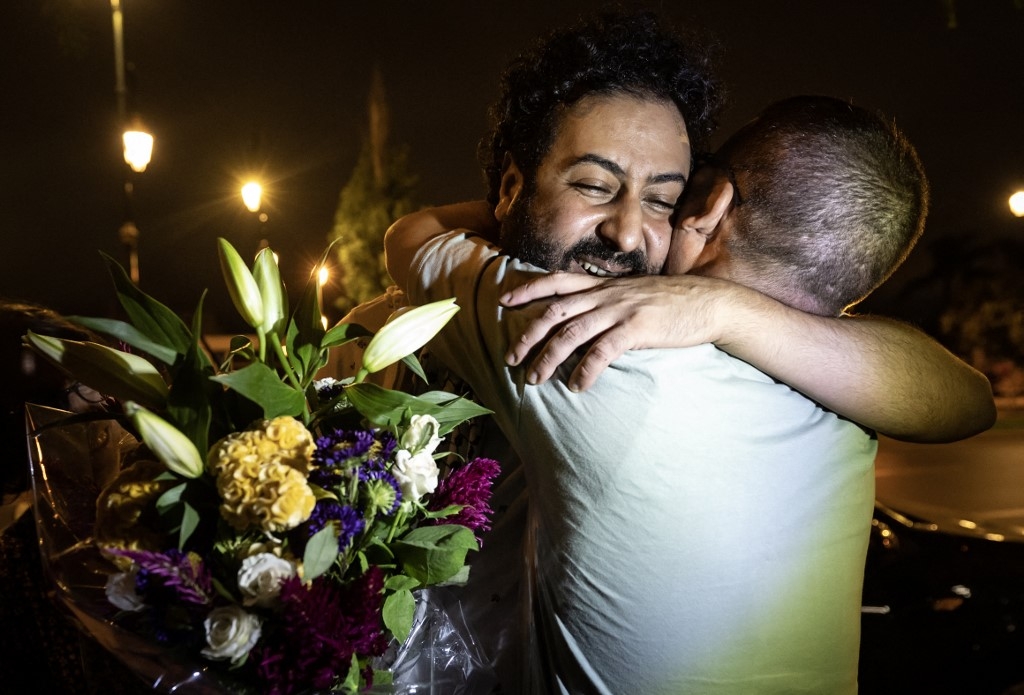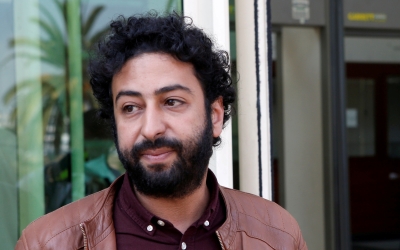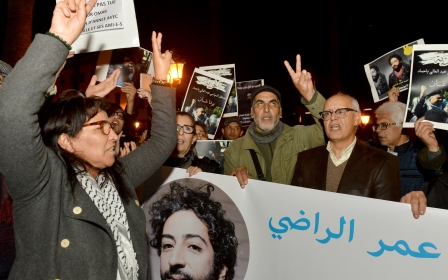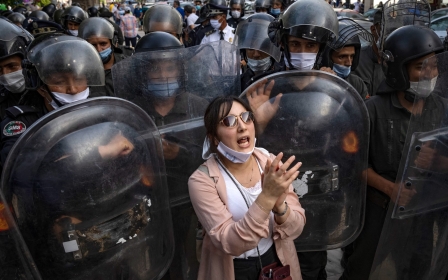Morocco's king pardons journalists and human rights activists critical of government

King Mohammed VI of Morocco has pardoned a number of journalists and human rights activists on the kingdom's Throne Day, a public holiday which commemorates his formal accession to the throne.
Those released include prominent journalists Omar Radi, Soulaimane Raissouni and Taoufik Bouachrine, who had been detained for several years each.
The historian and human rights defender Maati Monjib was also among the 2,476 people whose pardons were announced by the Ministry of Justice, the AFP news agency reported.
Other journalists and activists pardoned included Imad Stitou, Hicham Mansouri and Saida El Alami, local media reported.
Radi, 38, who used to work for Middle East Eye, and Raissouni, 52, were arrested in 2020, while Bouachrine, 55, was jailed in 2018.
New MEE newsletter: Jerusalem Dispatch
Sign up to get the latest insights and analysis on Israel-Palestine, alongside Turkey Unpacked and other MEE newsletters
Known for their criticism of the government, Radi, Raissouni and Bouachrine were all accused of various sexual crimes.
Radi was additionally charged with “harming the internal and external security of Morocco” and receiving funds from sources “linked to foreign intelligence agencies”.
The accused always denied the allegations, saying they were being punished for their opinions.
In July 2023, the Moroccan Court of Cassation, the highest judicial authority in the kingdom, rejected Radi and Raissouni’s appeals, upholding their sentences of six and five years respectively.
Bouachrine, founder and columnist of an Arabic-language daily newspaper, had an appeal rejected in 2021. Incarcerated since 2018, he was sentenced to 15 years in prison for "rape", "human trafficking" and "sexual assault" against several women.
Monjib, 62, a French-Moroccan national, was sentenced in early 2021 to a year in prison for "fraud" and "undermining state security" in a trial that opened in 2015.
The academic has also been under judicial investigation since 2019 for "money laundering", which earned him three months of preventive detention before a provisional release measure was granted in March 2021, after 20 days of hunger strike.
He is accused of embezzlement while administering a centre he created to promote investigative journalism, which he denies.
Sexual charges to suppress dissent
Human rights organisations have continuously called for the release of the men. On last year's Throne Day, Reporters Without Borders (RSF) called for their pardon.
The NGO ranked the kingdom 129 out of 180 in its latest World Press Freedom index.
Amnesty International had similarly called for the release of the four, while Human Rights Watch (HRW) accused the Moroccan authorities of using "common law criminal charges against opponents and critical media professionals".
In 2019 and 2020, Amnesty accused the Moroccan authorities of having planted the Israeli spyware Pegasus on Radi and Monjib's mobile phone, alongside other human rights defenders - a claim denied by Morocco.
The rights group also said that Radi was denied "a fair trial, including limited access to his lawyers, denying the defence team the right to cross-examine prosecution witnesses, excluding defence witnesses and other abuses."
"The government uses any means possible to silence its most persistent critics: intimidation, persecution, media assassination, fines, arbitrary detentions and convictions," the Moroccan academic Aziz Chahir wrote in an article for MEE.
"In the 2000s, the regime did almost everything it could to muzzle the so-called independent press, most of whose pioneers were forced into exile after their publications were banned, often because of wrongful convictions: people such as Aboubakr Jamai, Ali Lmrabet, Ahmed Reda Benchemsi and Hicham Mansouri," he added.
"There are countless cases in which the regime accuses dissidents of adultery, harassment or rape, which quickly turn into sex scandals thanks to the coverage provided by a gutter press," he wrote in another column.
Moroccan authorities, for their part, said the men were tried for common law crimes that "have nothing to do" with their profession.
The royal pardon also concerns 16 "detainees convicted in cases of extremism and terrorism" who had "revised their ideological orientations", the Ministry of Justice reported, without naming them.
"The Royal Pardon stands out for its human character, and was received with deep gratitude by the families of those pardoned," Hicham Mellati, director of Criminal Affairs and Pardons at the Ministry of Justice, told AFP.
On his release from prison, Omar Radi said he was "grateful".
"I learned that other detainees in similar cases have been released, I am very grateful," he told AFP near the Tiflet detention centre, about 60 kilometres east of Rabat.
The pardon could calm "the Moroccan public space", he added.
Middle East Eye delivers independent and unrivalled coverage and analysis of the Middle East, North Africa and beyond. To learn more about republishing this content and the associated fees, please fill out this form. More about MEE can be found here.





